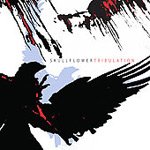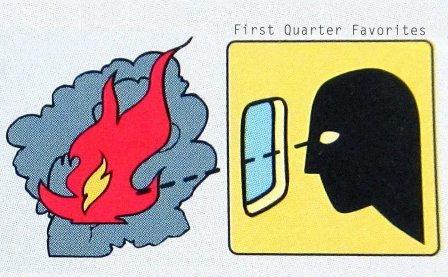Is there a fine line between the profound and the disposable in the world of noise? Skullflower seem to have tread that line before, but have embraced less polarizing rock/psych elements with their last few albums. Well, the noise has returned for Tribulation, and it's persistent. The album is absolutely coated with high-pitched skree and low-end, droning guitar static. It's all very crunchy, very full, but very long. Elements of more 'classic' noise albums are present, but when it comes down to musicality, there's not much to say. Tribulation is an hour of fairly uniform aural texture, so discussing what you're actually hearing is almost beside the point. Call it pretentious, call it what you will, but this experimentalism has invaded nearly all forms of entertainment, and the movement is forcing us to reconsider how we listen and how we contextualize what we hear. That contextualizing is a big source of polarization in the noise community, but the fact that such a community even exists (and is reported on) is a testament to the avant-garde's impact.
For Skullflower, it's a shame that their chosen genre is well past its infancy, because the inevitable end of most shock-value experimentation is assimilation. In essence, that shock value is gone. When I listen to Tribulation, I'm simply unimpressed, unmoved, and unperturbed. Contemporarily, this signifies the genre’s progression, and in a larger sense proves that no true line between brilliance and garbage exists. Noise is both profound and ridiculous at the same time, like a blank canvas that forces the viewer to put what they’re seeing, or hearing, into a wider context. Not everyone wants to participate in lofty conceptualization, but there's just as much to enjoy without using your ears. Case in point, if Tribulation were the first of its kind, it would be baffling, graphic, and amazing, but in 2007, it's just a pit stop on the long road of cultural acceptance.
More about: Skullflower




